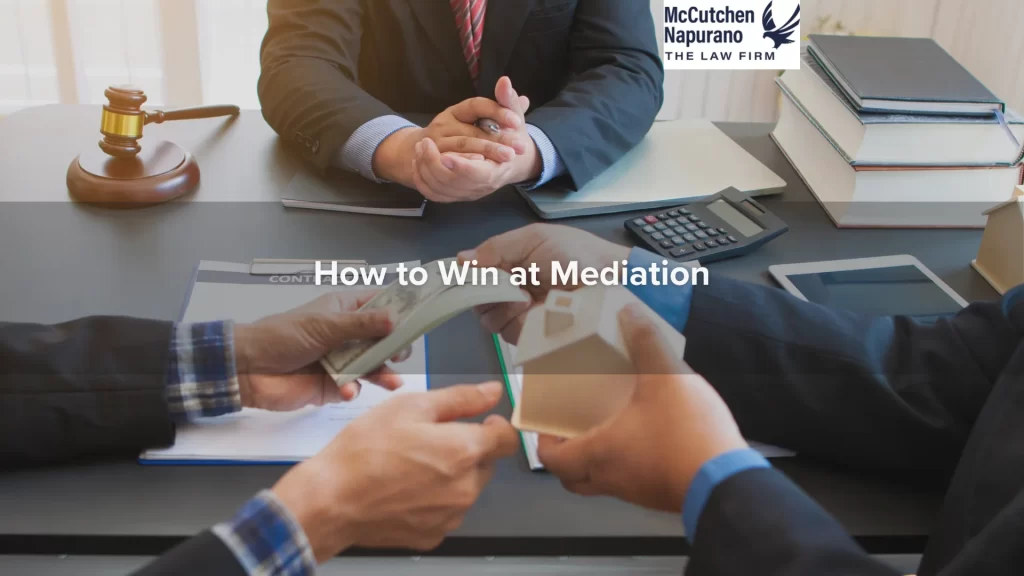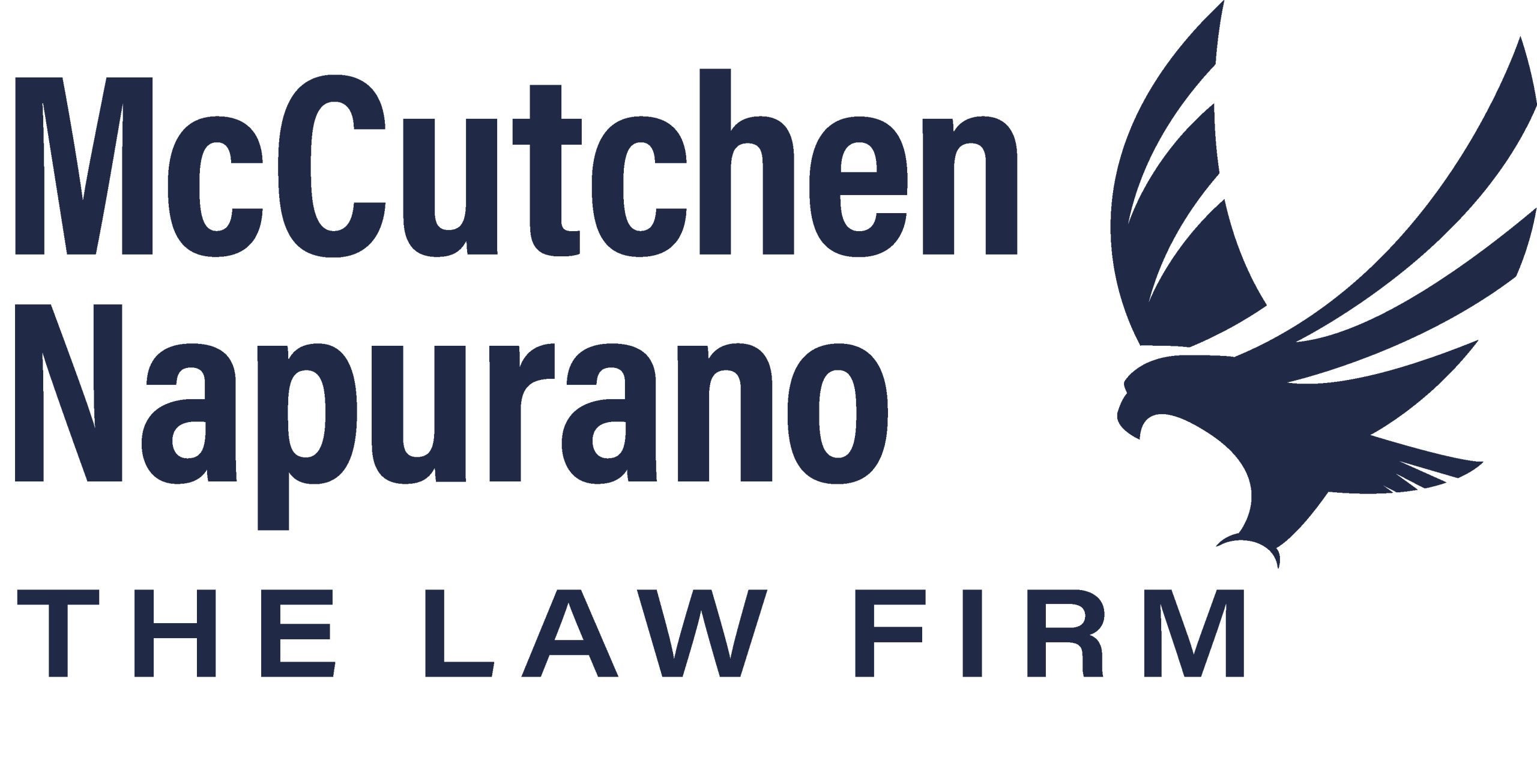Posted on Friday, September 22nd, 2023 at 9:00 am

Fighting for the compensation you may deserve in an Arkansas personal injury case can be a stressful process. It doesn’t have to be. If you’re struggling to negotiate with an insurance company, call a personal injury lawyer first. Then, consider mediation.
Mediation involves a neutral third party who tries to help those involved in a dispute resolve their issues. A study in the Negotiation Journal indicates mediation leads to successful resolutions 78% of the time.
Mediation is an option our Arkansas personal injury lawyers from McCutchen Napurano - The Law Firm can discuss with you in greater detail. We can help you understand how to win at mediation.
The Mediation Process Explained
When parties enter mediation, a neutral third party, the mediator, strives to facilitate an agreement between the disputing sides. Arkansas requires mediators to possess certain qualifications. State law establishes what these qualifications are.
Before mediation can begin, you must notify the other party of your desire to attempt mediation. It might also be necessary to let a judge know about your plans if your case is going to court. Be aware that a lawyer can handle the notification and many other tasks on your behalf.
All parties involved must agree to work with a mediator. The parties will evaluate the mediator’s qualifications and experience and must agree on which mediator to use. Next, they’ll set a date for the mediation session.
The mediation process usually involves these steps:
- Ground rules: When the session begins, the mediator will introduce the parties and explain the rules of mediation sessions. The mediator may also answer questions about the mediation process during this time. The parties will be required to sign a confidentiality agreement. Everything discussed in mediation is confidential.
- Argument presentation: The parties present opening arguments, explaining their position and highlighting their desired outcome from the mediation.
- Discussions: The mediator will often put the parties into separate rooms at this point and go back and forth between them, bringing proposals and suggestions back and forth to facilitate reaching an agreement.
A mediator’s role is to help the parties involved in a dispute arrive at an agreeable and fair settlement agreement.
Key Strategies to “Win” at Mediation
Officially, the ideal outcome in mediation is for everyone to leave satisfied with the terms of a mediation agreement. In an ideal world, there is no winner or loser at the end of the mediation process.
You must consider that the other party may gladly accept a mediation agreement that’s unfair to you. It’s important to protect yourself by applying the following mediation strategies:
- Preparing thoroughly: Mediation is less stressful and contentious than traditional settlement negotiations. The relaxed environment a mediator promotes is among the many reasons some choose mediation for personal injury cases. However, it’s still necessary to prepare for mediation like you would for a trial or a negotiation. Gather evidence and medical records, and outline the key points you’ll make during the mediation process.
- Understanding the other side: Mediation discussions are typically most productive when both sides of a dispute show respect. You may do so more effectively if you take the time to consider the other party’s perspective.
- Using the mediator: Understand the role of the mediator. When you fully appreciate their neutrality, your awareness could allow you to get more value from working with them because you’ll be more open to their suggestions. The other party may also be more willing to hear your side of a story from a mediator. Because a mediator is neutral, the other party may be less defensive when they state your case.
The Importance of Timing in Mediation
The insurance company’s ultimate goal may be to settle your case for less money than you seek. The goal of any company is to earn money and avoid losing it.
Remember this when notifying the other party of your desire to mediate. If you set a trial date beforehand, the insurance company might be more inclined to agree to the mediation process. The pressure of the impending trial may also give the insurance company more reason to accept your proposed settlement agreement terms. They may be less flexible without such pressure.
Effective Communication: Making a Strong Opening Statement
Focus on effective communication if you want to know how to win at mediation. Clear communication is particularly important when you make your opening statement. If you’ve engaged a lawyer, they’ll make the statement.
Your opening statement can serve two particularly useful purposes:
- Setting the tone for the mediation session – When drafting your opening statement, choose your words carefully. You want to clearly express your argument without censoring yourself. However, you also want to be respectful and not contentious.
- Highlighting key evidence and arguments – A mediator cannot compel you to accept any settlement. Your opening statement lets you emphasize your strongest evidence and explain your desired outcome. The mediator will hear your case and why you’ve adopted your position so they know what you’re working toward.
Don’t overcomplicate learning how to win at mediation. The most successful mediation strategies are often similar to the most successful negotiation and trial strategies. All require thorough preparation.
Navigating the Mediation Session

The mediation process involves at least two parties stating their cases. You must pay attention to the nuances of the process to know when to:
- Introduce critical points at strategic times
- Push forward
- Hold back
- Be flexible and adapt
In these circumstances, it helps to have representation from a lawyer who understands the mediation process. They can help you through it more confidently.
The True Meaning of “Winning” at Mediation
Success in mediation isn’t necessarily about getting everything you want. It’s about arriving at a fair resolution and just that both parties can live with.
You may achieve this goal more with an attorney on your side. At McCutchen Napurano - The Law Firm, our Arkansas personal injury lawyers can answer your questions about this topic and provide valuable assistance when we represent you. Get started today by contacting us online or calling us at (479) 783-0036 to schedule your case review.
Related posts
How long does it take to settle a case?
Talk to a lawyer first for your own safety




